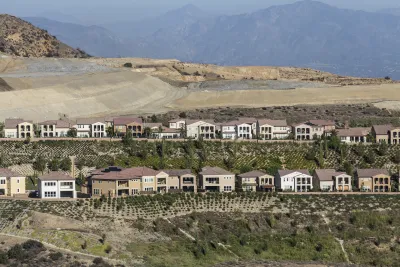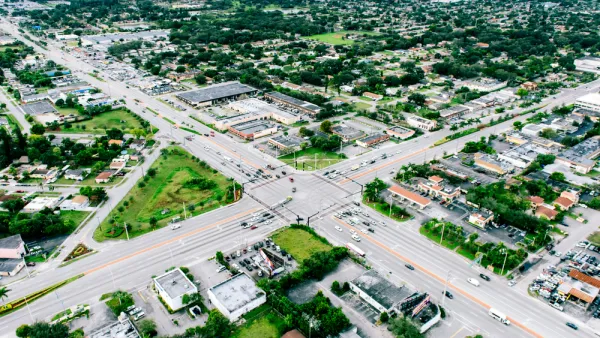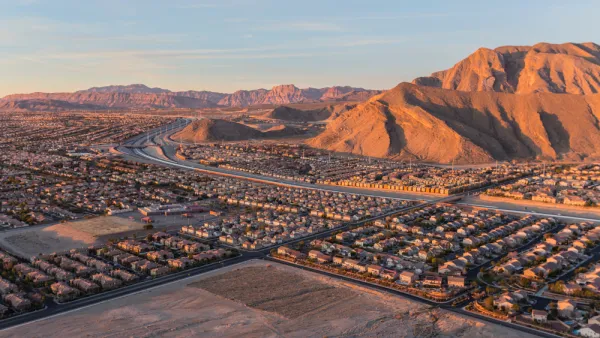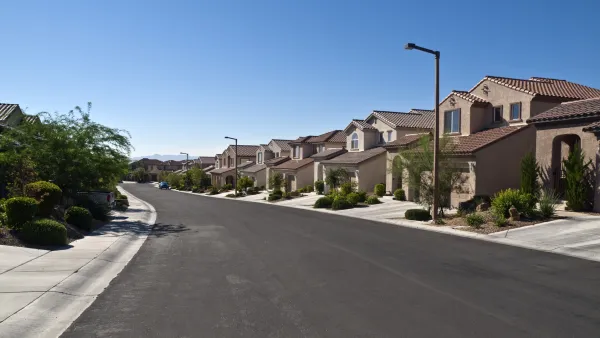The politics of development in California achieved another significant milestone recently, when a YIMBY organization and an environmental advocacy organization collaborated on new land use legislation to be considered by the State Legislature.

California YIMBY and the Nature Conservancy have co-sponsored a bill, AB 68, that would make it harder to build housing in areas prone to fires or flooding and make it easier to build housing in urban areas. The legislation marks a new level of partnership between the pro-development and environmental movements in California.
According to the California YIMBY website, the bill creates new sustainability criteria for greenfield development that would require local governments to demonstrate that greenfield housing development “is necessary to meet local housing needs,” relocating the burdens of the development approval process usually reserved for urban developments. State Assembly Member Chris Ward, the legislator carrying the bill, is quoted in an article by Dustin Gardiner for the San Francisco Chronicle saying the bill would make it ‘very rare or close to impossible’ for exurban development.
California YIMBY noted that the law would also make it easier to develop housing in urban areas by accelerating approvals for new homes in areas already determined to be “climate safe” by Sustainable Communities Strategies and Master Environmental Impact Reports. (Sustainable Communities Strategies are already mandated by the state’s landmark land use legislation, SB 375.)
For years, environmental groups in the state have opposed development in urban areas, wielding the state’s California Environmental Quality Act (CEQA) to block urban developments and prevent reforms intended to mitigate CEQA abuse. Meanwhile, sprawling greenfield development gobbled up agricultural land and natural space on the periphery of the state’s regions, contributing to greenhouse gas emissions and enabling white flight. The state’s urban areas are seeing dire consequences from rising housing costs, including out-migration, displacement, and growing numbers of people experiencing homelessness. Though some environmental groups have discussed the need for a new approach to land use regulation to respond to these crises, the partnership between California YIMBY and the Nature Conservancy is a new level of action.
The news comes on the heals of another clear sign of the shifting politics of development in California—earlier this week, the state supreme court declined to consider a CEQA appeal from opponents of a multi-family development in the East Bay suburb of Lafayette. It’s safe to say we are seeing a tectonic shift in the politics of planning in the nation’s most populous state.
With talking points about ending exurban development likely to be a non-starter for many in the halls of political and financial power in the state of California, the model for partnership between YIMBYs and an environmental advocacy organizations has been established, and we are likely to see new examples of similar efforts, soon.
While some environmental groups have been slowly coming around the urbanism as a sustainable practice, there’s still a long way to go, so there’s lots of room to experiment. For example, California is a one of a relatively small number of states where environmentalists wield this kind of veto power over development decisions, so it would be interesting to see where these kinds of partnerships might find new middle ground where the opposite is true, and development forces hold all the cards. The political math of this kind of partnership might work out in either setting because this partnership represents a new middle ground.

Analysis: Cybertruck Fatality Rate Far Exceeds That of Ford Pinto
The Tesla Cybertruck was recalled seven times last year.

National Parks Layoffs Will Cause Communities to Lose Billions
Thousands of essential park workers were laid off this week, just before the busy spring break season.

Retro-silient?: America’s First “Eco-burb,” The Woodlands Turns 50
A master-planned community north of Houston offers lessons on green infrastructure and resilient design, but falls short of its founder’s lofty affordability and walkability goals.

Test News Post 1
This is a summary

Analysis: Cybertruck Fatality Rate Far Exceeds That of Ford Pinto
The Tesla Cybertruck was recalled seven times last year.

Test News Headline 46
Test for the image on the front page.
Urban Design for Planners 1: Software Tools
This six-course series explores essential urban design concepts using open source software and equips planners with the tools they need to participate fully in the urban design process.
Planning for Universal Design
Learn the tools for implementing Universal Design in planning regulations.
EMC Planning Group, Inc.
Planetizen
Planetizen
Mpact (formerly Rail~Volution)
Great Falls Development Authority, Inc.
HUDs Office of Policy Development and Research
NYU Wagner Graduate School of Public Service





























